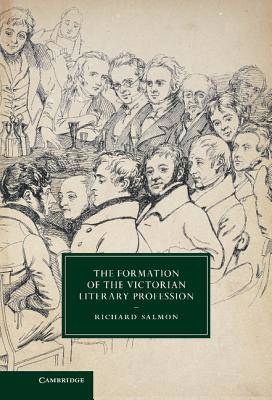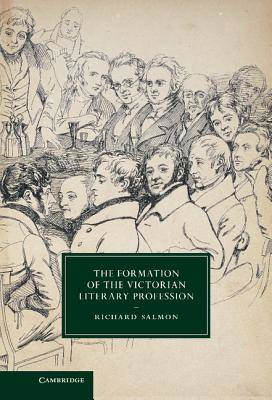
- Afhalen na 1 uur in een winkel met voorraad
- Gratis thuislevering in België vanaf € 30
- Ruim aanbod met 7 miljoen producten
- Afhalen na 1 uur in een winkel met voorraad
- Gratis thuislevering in België vanaf € 30
- Ruim aanbod met 7 miljoen producten
Zoeken
Omschrijving
Richard Salmon provides an original account of the formation of the literary profession during the late Romantic and early Victorian periods. Focusing on the representation of authors in narrative and iconographic texts, including novels, biographies, sketches and portrait galleries, Salmon traces the emergence of authorship as a new form of professional identity from the 1820s to the 1850s. Many first-generation Victorian writers, including Carlyle, Dickens, Thackeray, Martineau and Barrett-Browning, contributed to contemporary debates on the 'Dignity of Literature', professional heroism, and the cultural visibility of the 'man of letters'. This study combines a broad mapping of the early Victorian literary field with detailed readings of major texts. The book argues that the key model of professional development within this period is embodied in the narrative form of literary apprenticeship, which inspired such celebrated works as David Copperfield and Aurora Leigh, and that its formative process is the 'disenchantment of the author'.
Specificaties
Betrokkenen
- Auteur(s):
- Uitgeverij:
Inhoud
- Aantal bladzijden:
- 302
- Taal:
- Engels
- Reeks:
- Reeksnummer:
- nr. 87
Eigenschappen
- Productcode (EAN):
- 9781107039629
- Verschijningsdatum:
- 27/06/2013
- Uitvoering:
- Hardcover
- Formaat:
- Genaaid
- Afmetingen:
- 155 mm x 229 mm
- Gewicht:
- 635 g

Alleen bij Standaard Boekhandel
+ 345 punten op je klantenkaart van Standaard Boekhandel
Beoordelingen
We publiceren alleen reviews die voldoen aan de voorwaarden voor reviews. Bekijk onze voorwaarden voor reviews.








